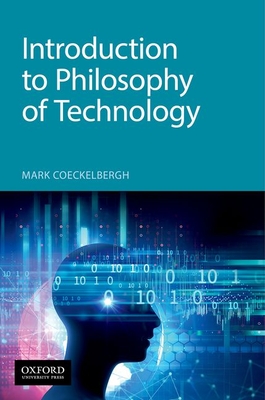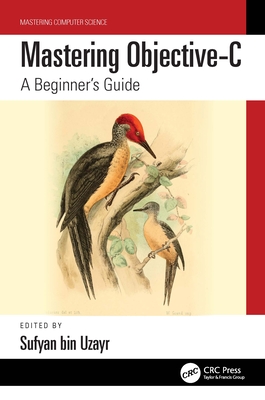图书简介
Addressing the technological opportunities and challenges of the 21st century, Introduction to Philosophy of Technology offers the most up-to-date and comprehensive overview of philosophy of technology available. It covers several of the classic theories and approaches, but also moves beyond them to explore a broader range of theories and a number of new dynamics in the field, including responding to new technological developments. Esteemed scholar Mark Coeckelbergh emphasizes how new technological developments stimulate philosophical thinking--and rethinking--and how philosophers of technology could do more to interact with other subdisciplines in philosophy and fields beyond academia, such as art and policy.
PART 1. INTRODUCTION: PHILOSOPHY OF TECHNOLOGY?; 1. Introduction; Case/Technology: Nuclear Technology and the Atomic Bomb: ; 1.1. Thinking about Technology?; 1.2. Approach, Structure of the Book, and Overview of Chapters; 2. History and Landscape; Case: Technology, Knowledge, and Memory: ; 2.1. Beginnings: Two Ancient Myths; In Focus: Bernard Stiegler: ; 2.2. A Brief History of the Discipline; Technology: The Time Machine: ; 2.3. Historical Context, Landscape of the Discipline, and Critical Questions; Technology: The Industrial Revolution: ; In Focus: Carl Mitcham: ; PART 2. THINKING ABOUT TECHNOLOGY BY STARTING FROM THEORY; 3. Phenomenology and Hermeneutics: Heidegger, McLuhan, and Contemporary Work; Case/Technology: Robotics and Artificial Intelligence and the Question about Mastery: ; 3.1. Heidegger?s Essay Concerning Technology: Beyond an Instrumental Understanding of Technology; In Focus: Martin Heidegger: ; 3.2. McLuhan?s Understanding of Media; In Focus: Marshall McLuhan: ; In Focus: Maurice Merleau-Ponty: ; Case/Technology: The Internet: ; 3.3. Some Contemporary Work in Phenomenology and Hermeneutics of Technology; Case/Technology: Artificial Intelligence: ; In Focus: Hubert Dreyfus: ; 4. Postphenomenology, Material Hermeneutics, and Mediation Theory; Case/Technology: Driving a Car: ; 4.1. Introduction: The Empirical Turn; 4.2. Ihde?s Postphenomenology and Material Hermeneutics; In Focus: Don Ihde: ; Case/Technology: Robot as Quasi-Other: ; 4.3. Contemporary Postphenomenology and Mediation Theory; In Focus: Peter-Paul Verbeek: ; Technology/Case: Medical Sonography/Ultrasound: ; 4.4. Critical Discussion; 5. Critical Theory and Feminism; Case: Digital Technologies in a Corporate and Capitalist Context: ; 5.1. Marx: Political Economy and Technology; In Focus: Karl Marx: ; 5.2. Marx 2.0.: Social media and Exploitation; Case/Technology: Social Media and Web 2.0: ; 5.3. Critical Theory about Technology Beyond Marx: From Marcuse and Foucault to Feenberg and Winner; In Focus: Michel Foucault: ; Case: Surveillance: The Panopticon and Airport Security: ; Case: Biased Algorithms and Algorithms Not in the Interest of Consumers: Job Selection, Criminal Justice, and Online Stores: ; In Focus: Andrew Feenberg: ; In Focus: Langdon Winner: ; 5.4. Feminist Thinking about Technology; Case: Design of Household Robots: ; In Focus: Donna Haraway: ; 5.5. Critical Discussion; 6. Pragmatism, Analytic Approaches, and Transcultural Philosophy; Case/Technology: Neonatal Care and Technology: ; 6.1. Pragmatism; In Focus: John Dewey: ; 6.2. Analytic Philosophy of Technology; Technology: Money and Contemporary Financial Technologies (Cryptocurrencies and Blockchain): ; In Focus: John Searle?s Social Ontology: ; 6.3. Intercultural and Transcultural Philosophy of Technology?; In Focus: Gilbert Simondon: ; Case/Technology: Digital Communication Technologies and The Good Life: ; PART 3 . THINKING ABOUT TECHNOLOGY BY STARTING FROM TECHNOLOGY; 7. From Information Technologies to Philosophy and Ethics of Information; Technology: Digital and Virtual Worlds, The Matrix, and Beyond: ; 7.1. Introduction; In Focus: Norbert Wiener: ; 7.2. All about Information: Floridi?s Philosophy and Ethics of Information; Case/Technology: Fake News and the Internet: ; 7.3. Critical Discussion; 7.4. Conclusions for Philosophy of Technology; 8. From Robotics and AI to Thinking about Moral Status and Human Relationships; Case: Self-Driving Cars: ; 8.1. Introduction; 8.2. Moral Machines? The Discussion about Moral Agency; Case: Biased Algorithms: ; 8.3. The Discussion about Moral Patiency; 8.4. Changing the Question: Toward More Relational Thinking; In Focus: Emmanuel Levinas: ; 8.5. The Debate about Sex Robots and Human Relationships: Feminist (or Egalitarian) Questions; Technology: Sex Robots: ; 8.6. Humans, Non-Humans, and the More-Than-Human; 9. From Genetic Engineering and Cyborgs to Transhumanism and Posthumanism; Case/Technology: Gene Editing: ; 9.1. Introduction; 9.2. Transhumanism and Human Enhancement; 9.3. Posthumanism and Cyborgs; In Focus: Haraway: ; In Focus: Stelarc: ; In Focus: Bruno Latour: ; 10. From Climate Change and Geoengineering to Questioning Nature and Thinking in and about the Anthropocene; Case/Technology: (Solar) Radiation Management as a Method of Geoengineering: ; 10.1. Introduction: Earth, We Have a Problem; 10.2. The Problem With Nature: Modern Versus Non-Modern Approaches; Case/Technology: Central Heating Versus Wood-Burning Stove: ; 10.3. The Anthropocene: Some Philosophical Responses; PART 4. THINKING ABOUT TECHNOLOGY BY GOING BEYOND PHILOSOPHY OF TECHNOLOGY (PHILOSOPHY OF TECHNOLOGY +); 11. Philosophy of Technology and Other Philosophy: (Re)Connecting with Other Philosophical Subdisciplines; Case/Technology: Social Media (2) and Its Effects on our Lives: ; 11.1. Introduction; 11.2. Ethics and Moral Philosophy: Thinking about Virtue and Thinking about Technology; 11.3. Philosophical Anthropology: Thinking about the Human and Thinking about Technology; Technology: Cochlear Implants: ; 11.4. Philosophy of Language: Thinking about Language and Thinking about Technology; In Focus: John Searle: ; Ludwig Wittgenstein: ; 11.5. Other Subfields: Some Examples; 11.6. Conclusions for Philosophers of Technology; 12. Philosophy of Technology and Other Academic Disciplines: Interdisciplinarity and Transdisciplinarity; Case/Technology: Robotics and Interdisciplinarity: ; 12.1. Introduction; 12.2. Some Examples of Transdisciplinary Work for Philosophers of Technology; In Focus: Deborah Johnson: ; Technology: Humanoid Robots: ; In Focus: Wiebe Bijker: ; 12.3. Challenges for Transdisciplinary Work; 13. Philosophy of Technology and Other Practices Beyond Academia; Case/Technology: Killer Drones and Activism: ; 13.1. Beyond Academia: Innovation, Policy, and Art; In Focus: Jeroen Van Den Hoven: ; In Focus: Robert Frodeman: ; Technology: Smartphones, Tablets, and Other Smart Devices: ; 13.2. Some Directions and Recommendations Concerning the Future of Research in Philosophy of Technology and Its Potential Implications for Education
Trade Policy 买家须知
- 关于产品:
- ● 正版保障:本网站隶属于中国国际图书贸易集团公司,确保所有图书都是100%正版。
- ● 环保纸张:进口图书大多使用的都是环保轻型张,颜色偏黄,重量比较轻。
- ● 毛边版:即书翻页的地方,故意做成了参差不齐的样子,一般为精装版,更具收藏价值。
关于退换货:- 由于预订产品的特殊性,采购订单正式发订后,买方不得无故取消全部或部分产品的订购。
- 由于进口图书的特殊性,发生以下情况的,请直接拒收货物,由快递返回:
- ● 外包装破损/发错货/少发货/图书外观破损/图书配件不全(例如:光盘等)
并请在工作日通过电话400-008-1110联系我们。
- 签收后,如发生以下情况,请在签收后的5个工作日内联系客服办理退换货:
- ● 缺页/错页/错印/脱线
关于发货时间:- 一般情况下:
- ●【现货】 下单后48小时内由北京(库房)发出快递。
- ●【预订】【预售】下单后国外发货,到货时间预计5-8周左右,店铺默认中通快递,如需顺丰快递邮费到付。
- ● 需要开具发票的客户,发货时间可能在上述基础上再延后1-2个工作日(紧急发票需求,请联系010-68433105/3213);
- ● 如遇其他特殊原因,对发货时间有影响的,我们会第一时间在网站公告,敬请留意。
关于到货时间:- 由于进口图书入境入库后,都是委托第三方快递发货,所以我们只能保证在规定时间内发出,但无法为您保证确切的到货时间。
- ● 主要城市一般2-4天
- ● 偏远地区一般4-7天
关于接听咨询电话的时间:- 010-68433105/3213正常接听咨询电话的时间为:周一至周五上午8:30~下午5:00,周六、日及法定节假日休息,将无法接听来电,敬请谅解。
- 其它时间您也可以通过邮件联系我们:customer@readgo.cn,工作日会优先处理。
关于快递:- ● 已付款订单:主要由中通、宅急送负责派送,订单进度查询请拨打010-68433105/3213。
本书暂无推荐
本书暂无推荐













